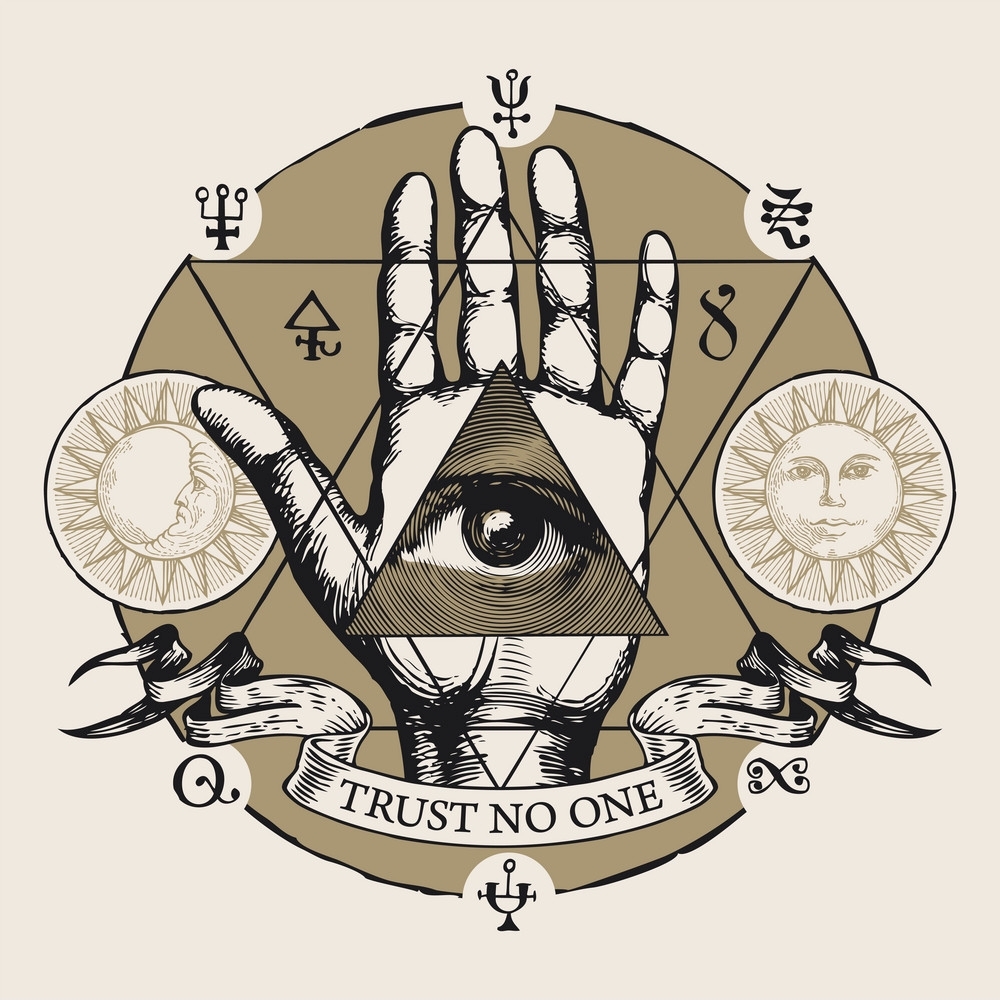At some point during the 17th-century, the Lesser Key of Solomon – also known as the Clavicula Salomonis Regis or the Lemegeton – was published. The grimoire’s origins and sources are mired in mystery. Though it claims to have been written by King Solomon, whose birth predated Christ’s by 900 years, it includes prayers to Jesus and the Holy Trinity, as well as references to titles of nobility that did not exist in Biblical times, making this accreditation highly unlikely.
The Pentagram of Solomon
The Lemegeton is divided into five parts. The first, the Ars Goetia, describes demons King Solomon is said to have invoked, captured in a brass vessel, and forced to do his bidding. The hierarchy of Hell it presents was influenced heavily by Johann Weyer’s Pseudomonarchia Daemonum. It is the part of the Lemegeton of interest to demonologists.
Ars Theurgia Goetia (the art of “goethic energy”) is second; Ars Paulina (the Art of the Apostle Paul) is third; Ars Almadel (The Art of the Almadel) is fourth; and the Ars Notoria (The Notable Art) is fifth. These parts are pertinent to Jewish theurgy.
The Lemegeton remains the most famous grimoire in occult literature.
72 Chief Spirits of the Goetia
The Ars Goetia lists 72 “chief spirits” in its hierarchy of Hell, classified according to their alchemical element: gold, copper, tin, silver, mercury, equal measures silver and copper, and lead. They were also divided based on their titles. They are, as follows*:
Sealed in Gold, the Kings: Bael, Paimon, Beleth, Purson, Asmoday, Viné, Balam, Zagan, Belial
Sealed in Copper, the Dukes: Agares, Valefor, Barbatos, Gusion, Eligos, Zepar, Bathim, Sallos, Aim, Buné, Berith, Astaroth, Focalor, Vepar, Vual, Crocell, Alloces, Murmur, Gremory, Vapula, Haures, Amdusias, Dantalion
Sealed in Tin, the Princes and Prelates: Vassago, Sitri, Ipos, Gäap, Stolas, Orobas, Seere
Sealed in Silver, the Marquises: Samigina, Amon, Leraje, Naberius, Ronové, Forneus, Marchosias, Phenex, Sabnock, Shax, Orias, Andras, Andrealphus, Cimeies, Decarabia
Sealed in Mercury, the Presidents: Marbas, Buer, Botis, Marax, Glasya-Labolas, Foras, Gäap, Malphas, Häagenti, Caim, Ose, Amy, Zagan, Valac
Sealed in Copper and Silver equally, the Earls or Counts: Botis, Marax, Glasya-Labolas, Ronové, Furfur, Halphas, Räum, Viné, Bifrons, Andromalius
Sealed in Lead, the Knights: Furcas
*Some demons are listed twice, because they have two ranks.
For other Infernal Names, see:
Occult – The Satanic Bible, Pseudomonarchia Daemonum, Tentatio Diabolus, The Red Book of Appin
Christian – Paradise Lost, Inferno, References to Demons in the Apocryphal Texts, Biblical References to Satan

